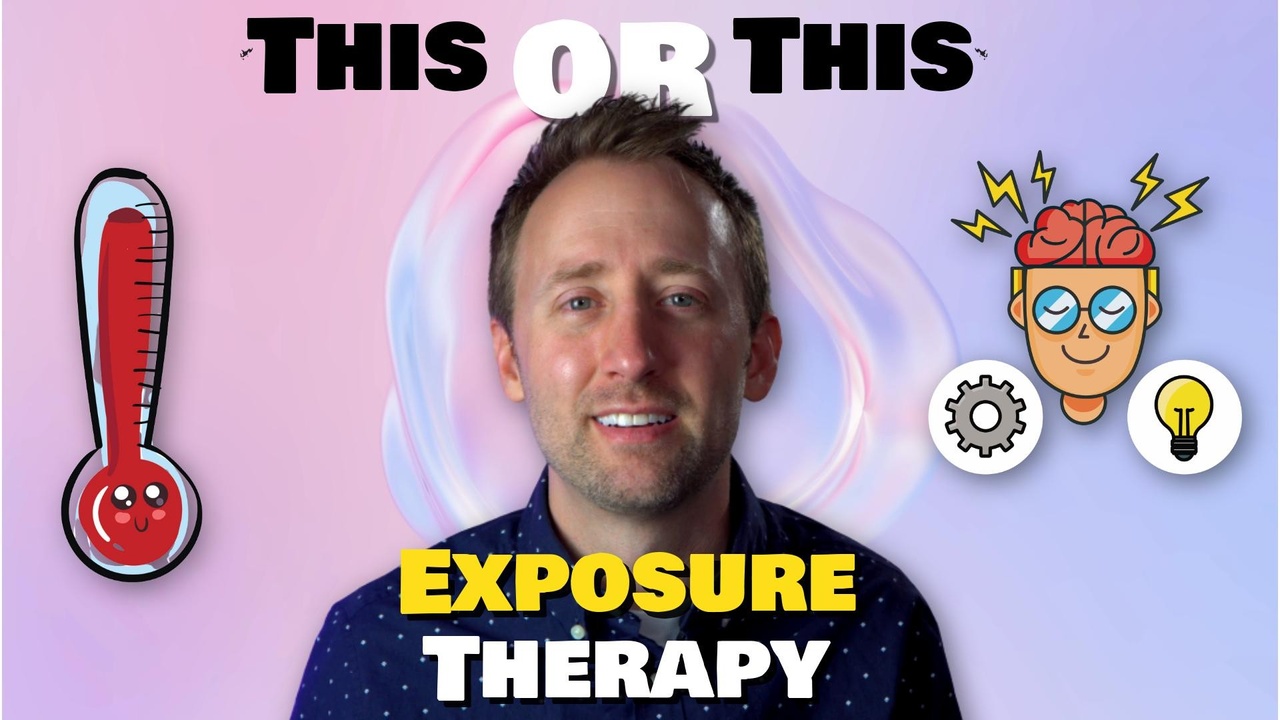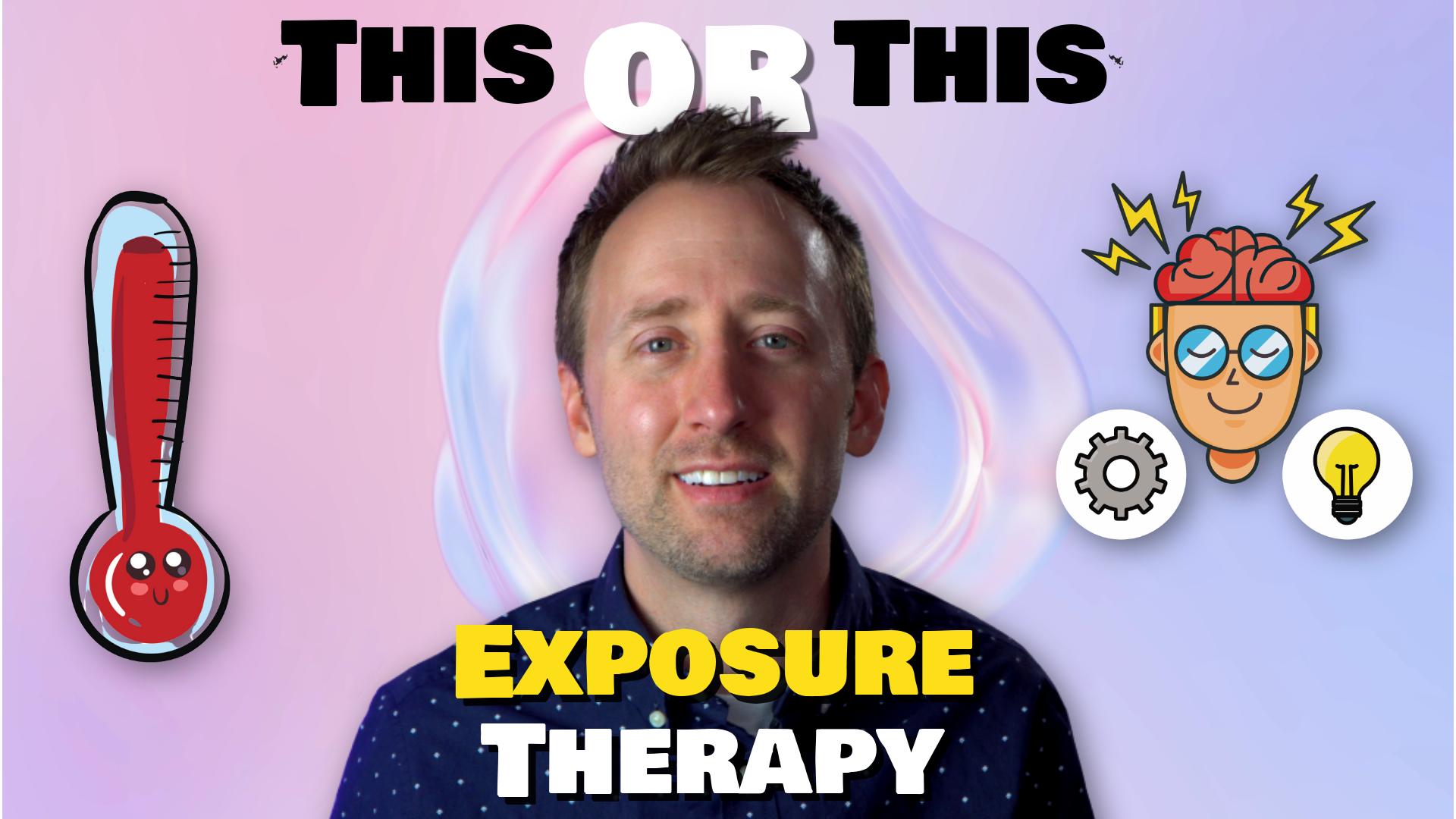Inhibitory Learning vs. Habituation | Exposure Therapy
Jul 11, 2021
Teaching The Brain Something New Exposure Therapy
When somebody is facing their fear, they repeat this process over and over again their body tends used to it. We’ve seen this in many different ways such as jumping into a really cool swimming pool. At the very beginning, it is very cold but their body adapts and get used to it. We didn’t have to spend time convincing ourselves it was going to get better, it just happens. This can be seen when we are using exposure and response prevention. When you are exposing yourself to the upsetting fear it’s going to feel very difficult at the beginning. Overtime, you may face the same fear but notice that the anxiety level is a lot less. This is seen as the habituation model. That we essentially are doing exposures to reduce your anxiety by half or more. You’re getting used to it, you’ve taken the value away from it. When it comes to the habituation model, it’s all about this anxiety reduction in your body adapting just like the swimming pool. We will often use us as a measure of success if you were doing exposures correctly. If you’re anxiety is reducing this is a good thing.
There are definitely some drawbacks from using the habituation model. Anxiety is something that we want to take value away from as well. If we are focusing solely on anxiety and having us go up and down individuals can get stuck in paying attention to the anxiety and wondering if they are doing the exposure correctly or not. Let me start obsessing about the actual anxiety versus the actual fear. Many will start to question and wonder why they’re in anxiety is not reducing. Well evidence shows that the habituation model does work, individuals can you get stuck with these pitfalls often.
This is why there is another approach to exposure and response prevention called inhibitory learning. While this is still being researched there is evidence that shows that this helps reduce OCD symptoms as well. The difference is not the actual exposure you were doing but rather the way you were approaching it. With the inhibitory learning model you are teaching your brain more than reducing anxiety. Exposures are all about what can your brain learned from this experience. It doesn’t matter if your anxiety reduces or not. It might not even matter if you have anxiety while you’re doing the exposure. The whole mindset is all about your brain learning something new. So if I was facing a fear that really caused some anxiety, the way I approach is designed is to face the fear, expose yourself to it and RESPOND differently to the fear. You sole focus is what am I teaching my brain by every movement, words I’m saying, what I’m thinking, how I’m behaving.
If I avoid touching something because it’s contaminated, my brain learned that that thing is dangerous. If I touched it and acted like it wasn’t a big deal and didn’t do any compulsions, then my brain learns it’s not a big deal. You may learn time and time again that you faced your fear and NOTHING happened. That is what the brain is learning.
If you’re confused by the two, here is an easy way to remember:
The habitual model means your body is getting used to it and your anxiety is reducing.
Inhibitory learning model means your mindset is all about what your brain is learning from the exposure regardless of the anxiety felt.
Realistically, there isn’t the right choice comes to do an exposures. You do what you feel like is best for you. I have used both models together where I focus majority of my time making sure that the person knows that the brain is learning something. We use anxiety as a measure but ultimately it doesn’t matter if the anxiety reduces or not.
If your brain can learn that the fear that you have is not happening and it is it because you’re trying to control the situation what is the compulsions and to me that’s one of the best ways to do an exposure. Let things be. Stop controlling. It feels like an experiment, but the experiment is worth taking for your brain to learn something major. That you’ve never been a danger.
















